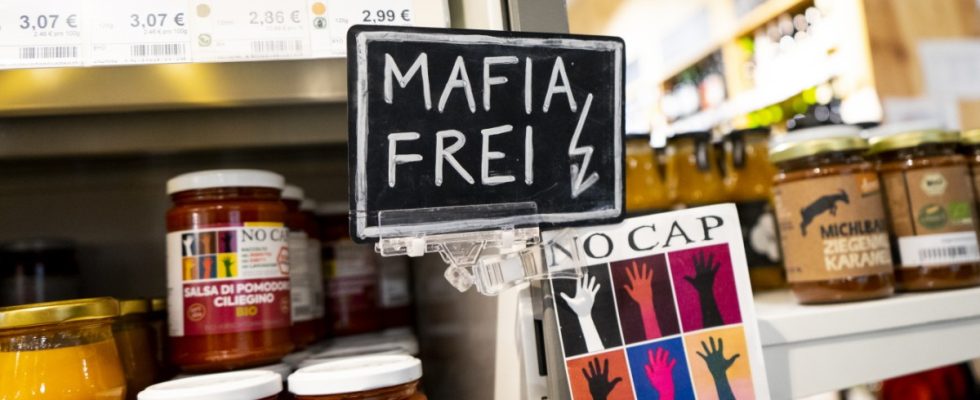Two shops, one idea: one, a family business with two branches, is in preliminary insolvency. The other, organized as a cooperative, recently welcomed its 2000th member a year and a half after it was founded.
The two business models cannot necessarily be compared. The packaging-free supermarkets “Ohne”, opened in 2016 and 2019 by Hannah Sartin and Carlo Krauß in Schwabing and Haidhausen, and the food hub Munich Market in Giesing, founded by Quentin Orain, Kristin Mansmann and Karl Schweisfurth, known from the Herrmannsdorfer Landwerkstätten. But the basic idea and the goals are the same: fair, regional, predominantly organic, sustainable and environmentally conscious up to completely packaging-free to turn the shopping world upside down. Something that many Munich residents would subscribe to in a city that wants to become a zero-waste city.
The difference is already evident at the entrance. Only authorized members are allowed to shop at the Foodhub. These are people who work three hours a month. At the checkout, when stocking the shelves, in the packaging station. Every customer is a co-owner and employee and can help shape it. 90 to 95 percent are Munich residents, around 70 percent live within a kilometer radius, most of them between the ages of 30 and 35 and between 50 and 60. Foodhub wants to continue to grow and open new shops, says Schweisfurth.
Hannah Sartin and Carlo Krauß, on the other hand, are fighting for the survival of their unpackaged business and their life’s work. They have already had to close the branch on Rosenheimer Strasse, and something similar is threatening on Schellingstrasse. For the time being, operations will only run until July 1st. If a solution is not found, i.e. comrades-in-arms.
Both are pioneers. According to the Foodhub, it is the first solidarity hands-on supermarket in Munich, and the unpackaged store that opened on Schellingstraße in 2016 was the first to specialize in unpackaged food, for which the couple received the Stadtsparkasse founding prize in the same year.
Karl Schweisfurth, Quentin Orain and Kristin Mansmann (from left) founded the food hub in Giesing.
(Photo: Mark Siaulys Pfeiffer)
After the concept and business developed beautifully, as Hannah Sartin says, they opened the second store in Haidhausen in 2019. Then came Corona and above all the effects of the pandemic. “In particular, the regular customers from the universities, offices and schools who did not live in Schwabing were broken off by home office,” says Hannah Sartin. People were unsure how dangerous unpackaged food was during the pandemic. “We had a super strict hygiene concept, everything was rinsed immediately and disinfected afterwards.”
Even when normality returned, one felt that many life plans had changed. Many stayed in the home office, had to change jobs or quit, would have moved away. “During the week we were almost completely empty,” says Carlo Krauss. It was followed by the Ukraine war, inflation. “We actually didn’t have the marketing budget to communicate to the outside world in a big way that we didn’t make any price increases in 2022,” says Sartin. “With declining sales and increasing bottlenecks in our supply chains, we were no longer able to stock the entire range. At some point you reach a point where it’s no longer possible.”
Right from the start, the Foodhub founders had opted for a full range and a minimum store size, following advice from similar projects in Paris and the USA. If you only have a small offer, the customer has to go to two or three other stores, which takes time, says Orain. “People may want something unpackaged, but they act differently and we’ve found a way around that.” The second tip was to design everything like in normal supermarkets. “A presentation that people are used to, even with the opening times.”
Foodhub hopes to break even in about a year after investing around one million euros. Then you could also lower the surcharge on the purchase price. Currently, that’s a uniform 30 percent on each item, which often leads to crooked prices – but offers transparent pricing.

